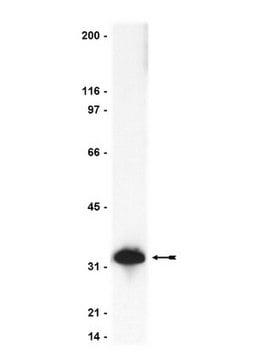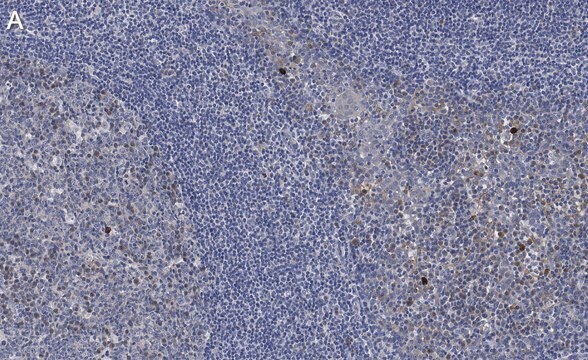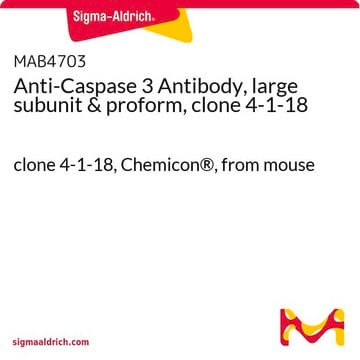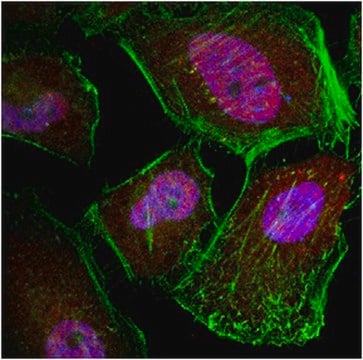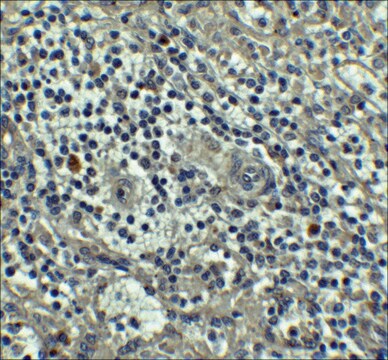Fontos dokumentumok
C5737
Monoclonal Anti-Caspase 3 antibody produced in mouse
clone 84803.111, purified immunoglobulin, lyophilized powder
Szinonimák:
Anti-Apopain, Anti-CPP32, Anti-Yama
About This Item
Javasolt termékek
biológiai forrás
mouse
Minőségi szint
konjugátum
unconjugated
antitest forma
purified immunoglobulin
antitest terméktípus
primary antibodies
klón
84803.111, monoclonal
form
lyophilized powder
faj reaktivitás
human
technika/technikák
western blot: 1.0 μg/mL using human Jurkat cells
izotípus
IgG2b
UniProt elérési szám
tárolási hőmérséklet
−20°C
célzott transzláció utáni módosítás
unmodified
Géninformáció
human ... CASP3(836)
Related Categories
Általános leírás
Egyediség
Immunogen
Biokémiai/fiziológiai hatások
Fizikai forma
Jogi nyilatkozat
Nem találja a megfelelő terméket?
Próbálja ki a Termékválasztó eszköz. eszközt
javasolt
Tárolási osztály kódja
11 - Combustible Solids
WGK
WGK 1
Lobbanási pont (F)
Not applicable
Lobbanási pont (C)
Not applicable
Analitikai tanúsítványok (COA)
Analitikai tanúsítványok (COA) keresése a termék sarzs-/tételszámának megadásával. A sarzs- és tételszámok a termék címkéjén találhatók, a „Lot” vagy „Batch” szavak után.
Már rendelkezik ezzel a termékkel?
Az Ön által nemrégiben megvásárolt termékekre vonatkozó dokumentumokat a Dokumentumtárban találja.
Az ügyfelek ezeket is megtekintették
Tudóscsoportunk valamennyi kutatási területen rendelkezik tapasztalattal, beleértve az élettudományt, az anyagtudományt, a kémiai szintézist, a kromatográfiát, az analitikát és még sok más területet.
Lépjen kapcsolatba a szaktanácsadással
